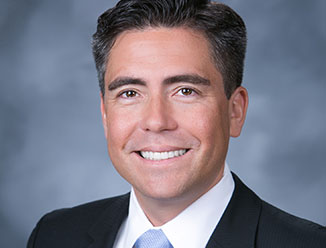How Would Privatizing GSEs Affect the Multifamily Market?
CBRE Vice President Brandon Smith discusses the complexities of ending the government's conservatorship of Fannie Mae and Freddie Mac, thus reducing their roles in the housing market.
By Brandon Smith

Brandon Smith
Late last month, the White House unexpectedly issued a set of wide-ranging policy recommendations that varied from benign to incredibly extensive. For example, some of the plans in the 150-page report include a merger of the Department of Education and the Department of Labor into a new “Department of Education and the Workforce.” It also includes a new “Department of Health and Public Welfare,” which would roll up all social services and replace the Department of Health and Human Services.
The portion of the report that is causing us and our clients the most concern is the plan in favor of privatizing Fannie Mae and Freddie Mac by ending the government’s conservatorship and reducing their roles in the housing market. They would still maintain an explicit but limited federal backstop in the event of a market crash.
David Stevens, president and CEO of the Mortgage Bankers Association, issued a statement supporting the change, which was in line with his discussions with policymakers but with a caveat: “As with any proposal of this size, the devil is in the details.”
What happens now?
There is still a lot we don’t know about this massive change to the housing market. Will the proposal maintain the current structure of the two agencies? Will the 30-year home mortgage still be available? How will the changes affect the multifamily programs? Will the government allow private companies to compete with Freddie and Fannie? And when will this all happen? And most importantly, how will this impact liquidity for Freddie and Fannie multifamily loans, which make up more than 80 percent of the apartment lending market.
We are tracking this very closely at CBRE. Brian Stoffers, a senior executive for MBA, and Peter Donovan, in a similar role with NMHC, have been advocating for access to capital in the multifamily sector via the agencies to policy makers. When President Trump replaces the current head of the Federal Housing Finance Agency next year, the process of reducing the footprint of the GSEs becomes a lot easier.
But, any approval for these latest proposals must have Congressional approval. Given the election is in about 4 months, the passage of a bill reorganizing three major federal departments and the entire housing industry seems unlikely this year. Still, Secretary Mnuchin is focused on making this a priority before the end of Trump’s first term.







You must be logged in to post a comment.